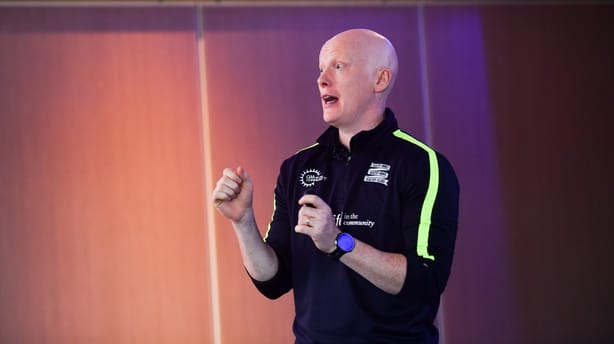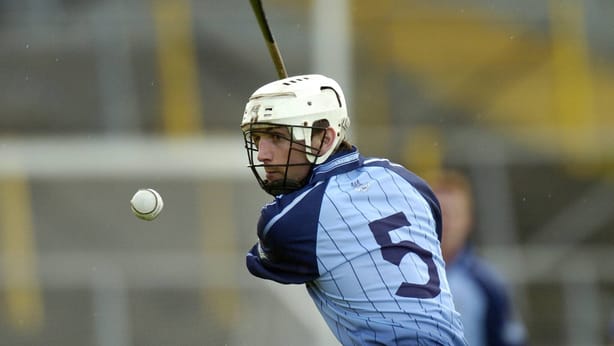National co-ordinator Charlie Harrison believes the success of this summer's Cúl Camps enhances the prospect of the 2020 senior inter-county campaigns being completed.
Harrison is one of just four Sligo men to hold a Connacht medal and an All-Star.
By the end of this week, he will have presided over trying to keep some sort of normality for thousands of children who were out of school, out of sync, and dealing with Covid-19 lockdowns and restrictions.
Last year 156,000 children passed through 1,234 Cúl Camps.
When the final 14 camps of the summer of 2020 come to an end this week, Harrison and his team coaches, co-ordinators and games managers, will still have managed to bring 71,000 children through 800 camps.
The number of participants and camps would have been even greater during the pandemic only for games promotion officers and administrators - with the exception of Derry - being placed on furlough in the six counties.
"We wanted everyone on the island to be able to participate but unfortunately, with the different jurisdictions, we couldn’t manage that," Harrison told RTE Sport.
"So, the most important thing was to give camps, fun, games and interactions to give as many as we could.
"I just felt that, in the year that was in it, kids needed social interaction and physical activity more than ever.
"I could see from my own nieces and nephews that some sort of normality was very important to them. All over the country kids, were thrown out of sync. There was no school and no sport. When lockdown came, I fought tooth and nail - along with other people - to make sure the camps would happen."
With new restrictions and phases emerging all the time it was clear the GAA would take a revenue hit with the scaling down of camps nationwide.
But the GAA's executive officers were happy for the programme to proceed – once it had been backed and approved by the HSE and the GAA’s Covid-19 Advisory Group.

Harrison went to even further extremes to ensure nothing was left to chance.
"As soon as lockdown happened and the phases unrolled, I contacted sport officials in New Zealand and New Zealand rugby as they were about a month ahead of us," he revealed.
"I contacted people in Denmark because they went back to school about a month ahead of us.
"All the time we were drawing up scenarios based on what might happen. From best-case scenario down to worst. And depending on what the Government was allowing us to do, in terms of social distancing, we issued guidelines around that."
The best-case scenario was that the camps would be allowed run as normal, which was never a likelihood.
In the worst-case scenario all camps would have been run on a virtual basis – with the GAA eventually deciding to film activities on a regular basis on TG4.
"The GAA advisory group was there all the time to reflect the different scenarios that were emerging and once John Horan, Tom Ryan, Shane Flanagan and Ger Mulryan gave me the go-ahead it was important that we had every base covered from there.
"Speaking to different experts around the world who were a month ahead, we were able to get a picture of what might happen then."
The most stressful point, he reckons, was the week before the camps started when coaches, administrators and co-ordinators were all nervous about the shape the country was in.
"Just as we had every box ticked there were fears of a resurgence of the virus back again and we thought; 'Oh my god this is not going to happen’.
"But everyone stayed behind us and as long as the advisory group approved, everyone recognised how important it was to hold the camps."

Harrison and the GAA’s e-learning manager, former Dublin hurler David Sweeney, put together a template, educating parents, coaches and co-ordinators on the guidelines and protocols that would need to be observed.
A child protection and safeguarding course -– which is normally conducted face to face - was held online for the first time ever with the help of the GAA’s National Children Officer Gearóid Ó Maoilmhichí.
They soon had 3,500 coaches brought up to speed with every possible scenario and guideline.
"I cannot stress the support we got from the games development managers at provincial and county level and the help from volunteers to help make it happen," Harrison adds.
"And the clubs. The camps could not have happened unless the clubs were happy and we had to go out to them as well with documents and videos for coaches and parents on what would be expected of them.
"What would the various scenarios be? How would the return to play documentation be completed? What would happen if a child became ill?
"But the work we put in meant that the HSE was very happy with the way we were running things."
"I heard a couple people like Davy Fitzgerald come out and speak of the importance of having some sort of normality come back.
Only one positive case out of the 71,000 children that passed through this year’s camps was identified and it’s understood that case was not directly linked to a camp, but an outside event.
"The HSE was very happy because we had everyone’s contact details," Harrison said. "We had every child in a pod, and they stayed there for a week with their coaches.
"If a case came up, the close contacts could be immediately identified and contacted made with other kids and parents.
"Schoolteachers and principals have been in touch to see how we did things and I think it’s important that the Cúl Camps have shown that it can be done.
"I heard a couple people like Davy Fitzgerald come out and speak of the importance of having some sort of normality come back.
"Hopefully, the Cúl Camps camps can have spearheaded that. Shown maybe that we can have some sort of normality. That we can’t just lock up.
"Sport is a fundamental part of our culture, especially the GAA and the feedback from children and parents has been phenomenal.
"I would feel it’s very important that the inter-county senior championships can go ahead in some way now.
"Maybe some bit of hope or light has come into homes now.
"At the start, a lot of people were saying, ‘this will not happen, ye are wasting your time'.
"But unless the Government came out and said those words, we were working on covering every scenario.
"The Cúl Camps have become a rite of passage for Irish kids, we had to do all we can to give them the chance of participating."
Over 3.5 million children have attended the camps since their inception in 2006.
History may yet show that their presence at this year’s gatherings were the most important of all.


